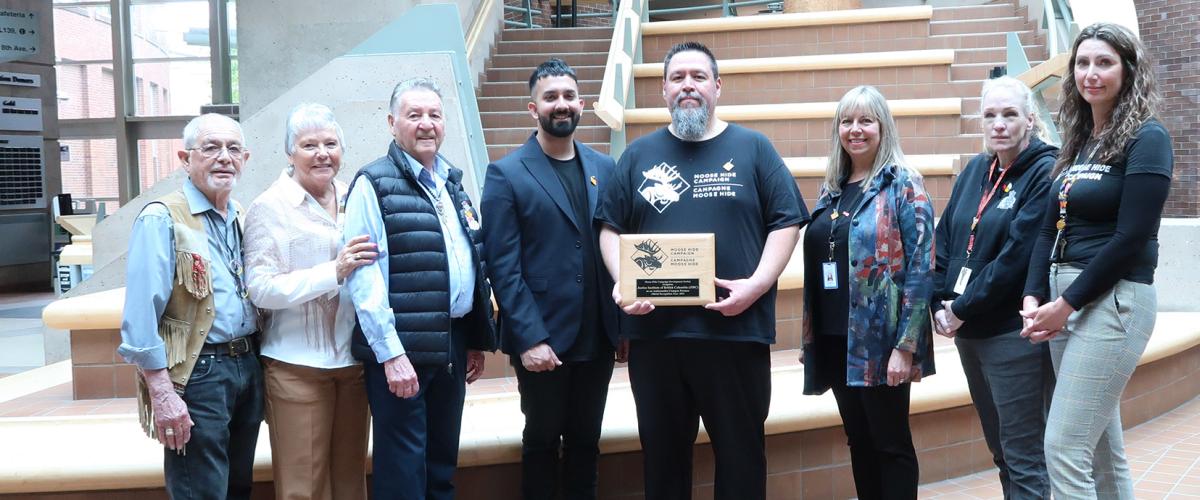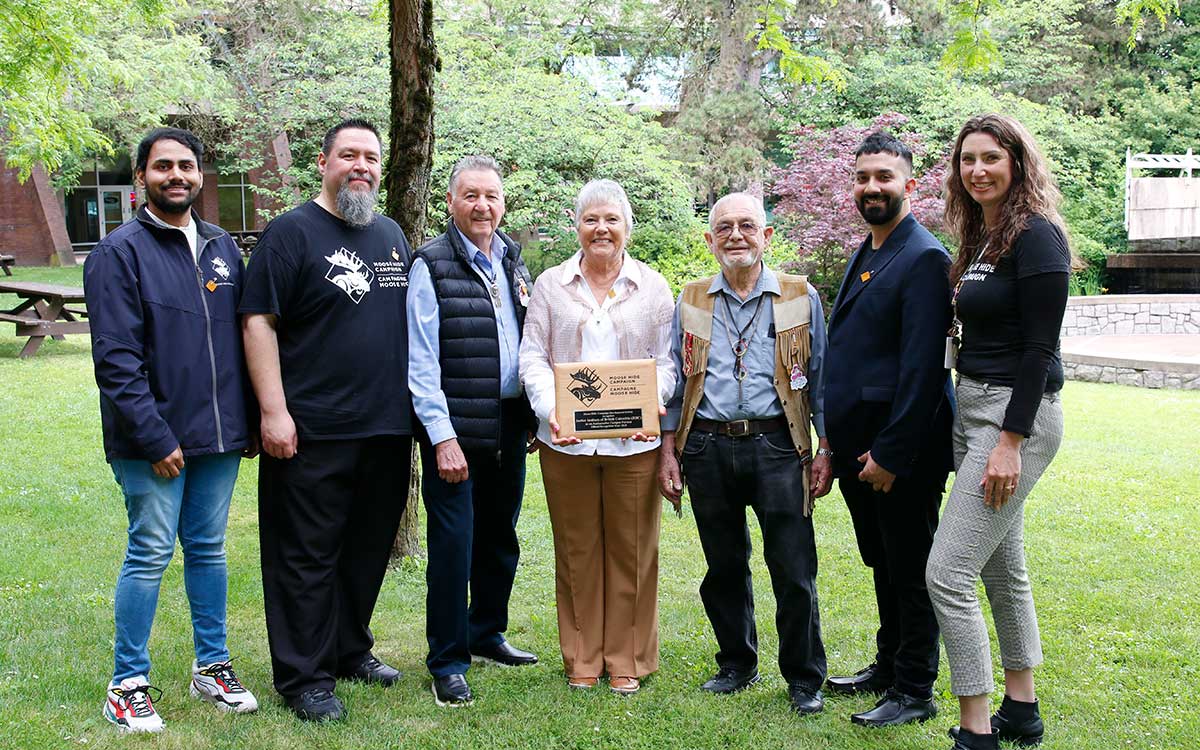Designation recognizes ongoing commitment to Reconciliation and ending domestic and gender-based violence
The Justice Institute of British Columbia (JIBC) is proud to announce that the Moose Hide Campaign Development Society (Moose Hide Campaign) has designated JIBC as a Moose Hide Campaign Ambassador Campus. The Moose Hide Campaign launched the Ambassador Campus Initiative to recognize post-secondary institutes that demonstrate an ongoing commitment to supporting the goals of the Moose Hide Campaign.
“For JIBC and its Office of Indigenization, it is humbling for us to receive recognition as a Moose Hide Campaign Ambassador Campus,” said Jason La Rochelle, Director of JIBC’s Office of Indigenization. “For at least five years, we have been supporting the Moose Hide Campaign, which has helped us create awareness and have discussions with future first responders about ending gender-based violence in all its forms. Each year, it is encouraging to see more students and recruits get involved with supporting the campaign as we see the impact of our engagement with them. It is important work for JIBC to continue.”
"We are so grateful for the leadership at the Justice Institute of British Columbia, and we would like to acknowledge all of their efforts fostering conversations that lead to safe spaces for our future generations,” said Raven Lacerte, Co-Founder, Moose Hide Campaign
"It has been amazing to work with JIBC and its Office of Indigenization over the last five years and their commitment to the Moose Hide Campaign as an official Ambassador Campus is truly inspiring. Each year, JIBC raises a Moose Hide Campaign Flag during the week of the National Moose Hide Campaign Day, raising awareness about gender-based violence and reconciliation,” said Dr. Omar Karim, National Director, Post-Secondary Engagement and Initiatives, Moose Hide Campaign.
Moose Hide Campaign: Medicine to end gender-based violence
The annual Moose Hide Campaign calls on all Canadians to take action against domestic and gender-based violence. The inspiration for the campaign came to co-founders Paul Lacerte and his daughter Raven in 2011 during a moose hunt on their traditional Carrier Territory along the Highway of Tears in Northern B.C. – where many women, mostly Indigenous, have gone missing or been murdered. The campaign started out with a focus on engaging with Indigenous men and boys to address this issue. Since then, it has expanded into a nationwide movement of Indigenous and non-Indigenous Canadians all committed to raising awareness and taking action to end gender-based violence.
A cornerstone of the Moose Hide Campaign is the moose hide pin. The pins are small squares of moose hide medicine and a gift to any and all Canadians who are called to help create a country safe for all women and children and those along the gender continuum. These pins serve both as a conversation starter and a visible symbol of a person’s commitment to ending domestic and gender-based violence. To date, over six million moose hide pins have been distributed free of charge to communities, schools, and workplaces across Canada.
JIBC’s commitment to furthering Moose Hide Campaign goals
For five years, JIBC, led by its Office of Indigenization, has championed the goals of the Moose Hide Campaign, lending our voice to those calling for an end to gender-based violence and promoting the implementation of the Truth and Reconciliation Commission’s Calls to Action, the UN Declaration on the Rights of Indigenous Peoples, and the National Inquiry into Missing and Murdered Indigenous Women and Girls’ Calls for Justice. Our commitment has included:
• Raising awareness by displaying the Moose Hide Campaign flag at JIBC’s New Westminster and Maple Ridge campuses, symbolizing the Institute's commitment to the cause.
• Information dissemination through on-campus and virtual kiosks that provide information about the Moose Hide Campaign and foster engagement within the JIBC community.
• Social media advocacy by staff, faculty, and students, including members of the executive team, who publicly pledge their support on social media, amplifying the campaign's message.
• Educating future justice and public safety professionals by engaging with faculty, students and recruits from the Police Academy, Paramedic Academy, the Fire & Safety, Corrections & Court Services and Community & Social Justice divisions, as well as the JIBC Students Union.
• Bringing attention to the issue by hosting film screenings to address toxic masculinity and gender-based violence.
• Helping to create safer communities and campus spaces by encouraging all students, staff and faculty to take an active role, such as by wearing the moose hide pin and making individual pledges of action.
“Participating in the Moose Hide Campaign has allowed JIBC to take action against gender-based violence while deepening our understanding of Indigenous ways of learning and healing,” said Colleen Vaughan, JIBC Interim President and CEO. “We’re honoured to be recognized as an Ambassador Campus as we continue on our own journey towards Reconciliation and embracing Indigenous ways of knowing, being, relating and doing.”
For more information on the Moose Hide Campaign, visit moosehidecampaign.ca.

